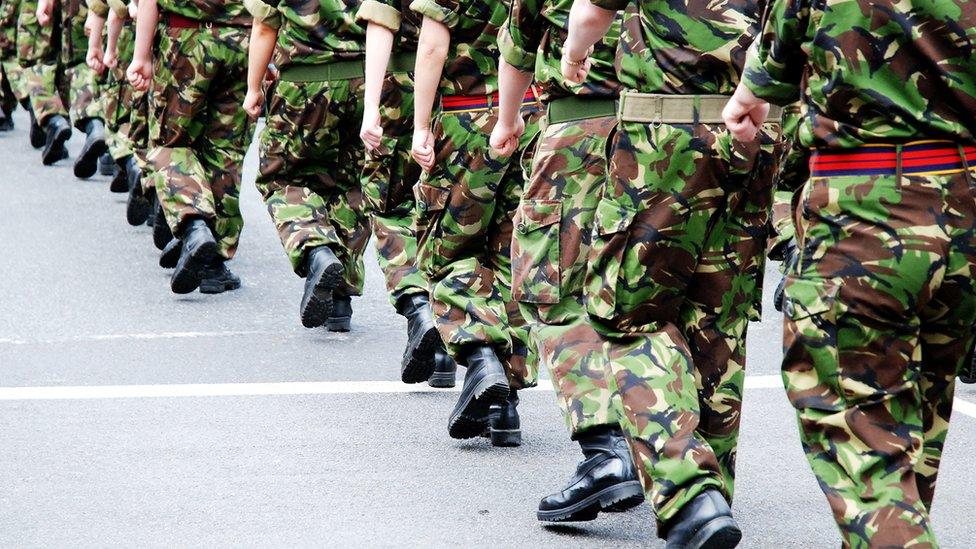New plan for NI Troubles cases to 'limit' investigations
- Published
The roots of Northern Ireland’s Troubles lie deep in Irish history
Only a small number of Troubles killings will receive "full-blown" investigations under a new approach to dealing with Northern Ireland's past.
The plan, announced by the government on Wednesday, will likely disappoint hundreds of families.
It would see the vast majority of almost 2,000 unsolved cases closed and prevented in legislation from ever being re-opened.
The move represents a significant rethink of the legacy issue.
Under what is being proposed, unresolved cases would be "swiftly" assessed by a new independent body.
But only those in which there is "new compelling evidence and a realistic prospect of a prosecution" would move to a full-blown investigation.

You may also be interested in:

In the rest of the cases, the objective would be to provide families with as much information possible.
The Northern Ireland Office said: "Once cases have been considered there will be a legal bar on any future investigation occurring.
"This will end the cycle of reinvestigations for the families of victims and (army) veterans alike.
Parties have been briefed about the plan, which would need to be adopted in legislation at Westminster.

On 21 July 1972, the IRA detonated at least 20 bombs across Belfast killing nine people. The day became known as Bloody Friday
One source familiar with discussions said while there is "a route to prosecutions, it is not the emphasis" under the fresh approach.
Previously, all or most cases would likely have had an investigation - a process which could collectively have taken a decade to achieve at a cost £400m.
The government has pledged to table legacy legislation within 100 days of Stormont's return in January.
The deadline is still being worked towards.
The updated legacy plan has been set out on the same day as the Minister for Veterans' Affairs, Jonny Mercer, announces legislation to protect former soldiers from "vexatious" historical investigations.
Notably however, it will only cover overseas operations, not Northern Ireland.
The proposals have met with a cool response in the Republic of Ireland.
Tánaiste (deputy prime minister) Simon Coveney said what was suggested amounted to "significant changes" to the legacy approach signed up to in the Stormont House Agreement in 2014.
Deputy First Minister Michelle O'Neill of Sinn Féin said the re-think was "unacceptable".
She added: "What is being proposed is not the implementation of Stormont House as committed to in the New Decade, New Approach document, nor is it fully human rights compliant."
SDLP leader Colum Eastwood said: "It is an act of spectacular bad faith for the secretary of state to seek to undermine previous agreements in the absence of clear consensus from all parties.
"The SDLP will robustly resist these proposals."
Grainne Teggart, Amnesty UK campaigns manager for Northern Ireland, said: "This is the latest attempt by the Government to close down paths to justice.
"These proposals are a further betrayal of victims already let down by the Government's failure to put in place mechanisms to deliver truth, justice and accountability."
- Published14 August 2019

- Published16 March 2020
